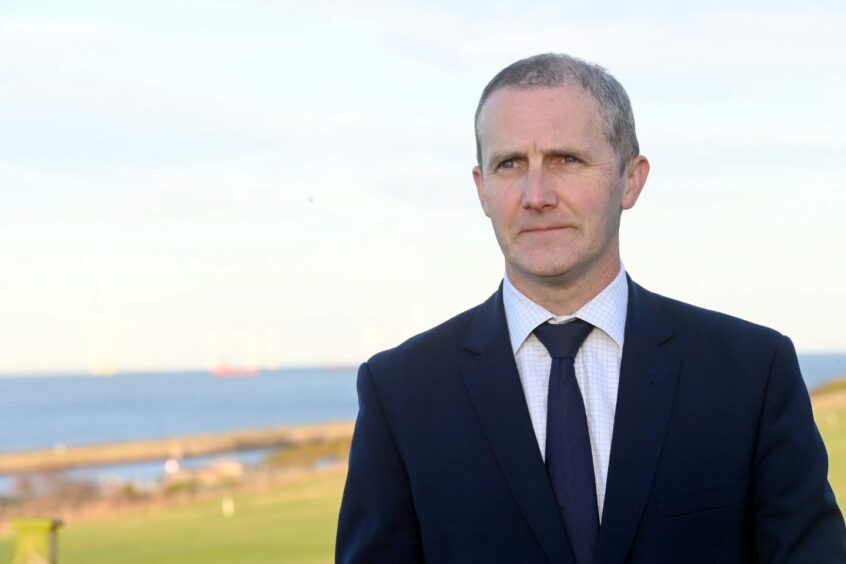 © Shutterstock
© Shutterstock More than three-quarters of Scots support domestic North Sea production, a survey has found, despite political moves which could harm the sector.
Advisory firm True North found, of its sample of 1,002 people, 76% said the UK should aim to meet its demand for oil and gas from domestic production.
The findings show 11% believe the UK should aim to meet its demand by importing energy from overseas, while the remaining 13% were unsure.
Sir John Curtice, a leading UK expert on public and social attitudes, said the findings show support across a variety of political voters.
The majority of voters for all the political parties agreed that the UK should produce its own oil and gas with almost 80% of SNP voters and 92% of conservatives opting for domestic production.
Sir John said: “Despite the current debate about climate change, most people in Scotland think that the energy industry in Scotland has had a positive impact on the UK and Scottish economies, and that, for so long as the UK continues to need oil and gas supplies, they are best sourced from within the UK rather than via imports.
“Indeed, this is one topic on which both nationalist and unionist supporters largely agree.”
When removing the 13% of people that did not have an opinion on the topic, 87% of respondents want to see the UK meeting its oil and gas demands domestically.
Of the five questions asked to the participants the majority responded to all of them with pro-industry opinions.
This comes as the Scottish Government has released its new energy strategy that moves away from North Sea oil and gas production and presumes no new exploration in oil and gas.
Instead, Scottish energy secretary Michael Matheson hopes to increase the number of jobs in the sector via renewable energy investment.
The move was described as a “breathtaking betrayal” of the north-east by Aberdeen and Grampian Chamber of Commerce, while Offshore Energies UK said it was “concerned” by the policy.
North-east businessman Sir Ian Wood joined in, pointing out that the “reality” is the jobs and economic benefits of renewables “will not be available at scale until 2030 at the very earliest.”
UK politicians also slammed the proposed plan with the new UK energy minister Graham Stuart MP saying that the Scottish Government are “posing” and not facing up to the “reality.
The Scottish public was also asked what impact North Sea energy companies have on the UK economy and 56% responded that they have a positive effect on the country’s purse strings.
Additionally, 54% agreed that energy firms positively affect the Scottish economy.
SNP Westminster chief Stephen Flynn seemingly shares public opinion on oil and gas in the UK North Sea, recently showing support for the controversial Cambo field, hinting that the development near Shetland could help Scotland’s energy security.
Windfall tax
Following news that Harbour Energy will be cutting up to “hundreds” of jobs and looking to invest outside of the UK due to disagreements with the UK government’s windfall tax, the Scottish people also criticise the Energy Profits Levy (EPL).
Nearly 32% of respondents said that the EPL is “quite ineffective” when it comes to encouraging energy companies to move away from fossil fuels towards renewable energy projects.
A further 20% described the measure as “very ineffective” while 20% of those surveyed believe that the EPL has been effective, compared to the combined 52% that thought otherwise.
It is also worth noting that 58% of those surveyed said that the windfall tax has been ineffective in lowering their household energy bills.
Managing partner of True North, Fergus Mutch, said: “Findings certainly throw up some challenges for both UK and Scottish governments, not least on how best to support an energy sector in transition through an ongoing crisis in global energy security.
“Nowhere is this approach facing more scrutiny than in the North East of Scotland, and it’s interesting to note that this region’s key industries have nationwide backing as an economic force for good and in leading the delivery of our domestic energy requirements, despite the Scottish Government’s announcement of a presumption against new oil and gas exploration as part of its new energy strategy.
“We know that the UK government’s windfall tax, however well-intentioned, is having a serious impact on investment decisions by energy firms at a time when certainty is needed.
“We’ll publish more of our findings today, which we hope will stimulate some informed discussion on the outlook for businesses and the economy over the year ahead.”



